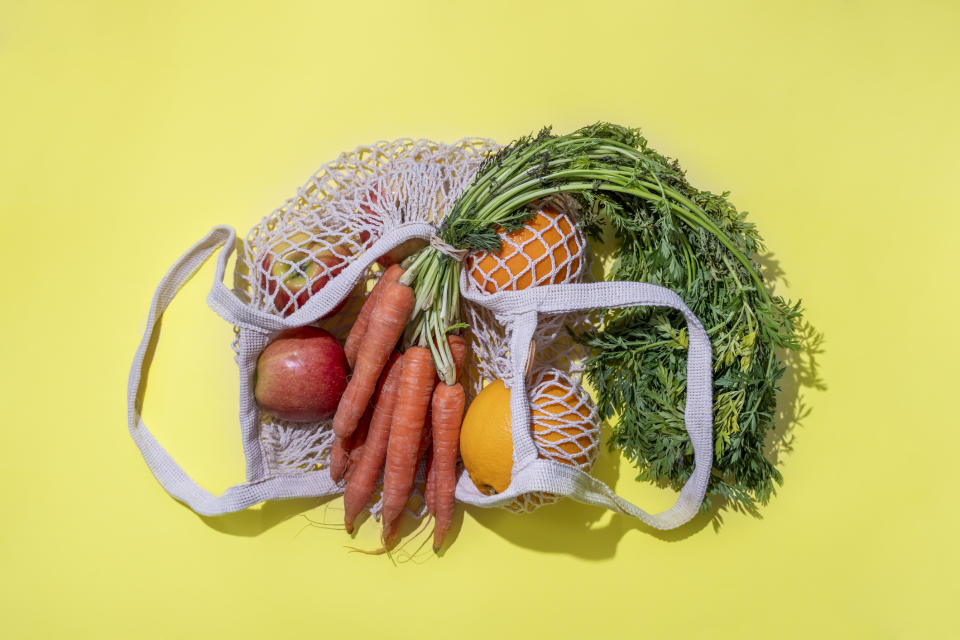$224 v $188: How to save on your grocery basket

Australian families could save around $1,880 a year by switching to a more sustainable and healthy diet, a new study has revealed.
The Deakin University study published in Nutrition Journal compared two sample Coles baskets. One was modelled off the traditional Australian diet and the other was a planetary health diet (PHD), high in vegetables, lentils, fruits, whole-grains and low in meat, dairy, starchy vegetables and added sugars.
The researchers carried out the study, using a reference household of two adults and two children, in seven different socio-economic areas and found that the plant-based basket was cheaper across all areas.
It found the median price of the typical basket was $224.36, while the planetary health diet was $188.21 - a difference of $36.15.
Over the course of a year, that’s a saving of $1,879.80.
In Sydney, that gap is even bigger with the sustainable basket $43 cheaper, or $2,236 over the course of a year.


“The PHD basket could be made even cheaper by further reducing or even eliminating the meat portion, eating seasonally when fresh produce will be at its cheapest, buying dry goods in bulk, utilising supermarket special buys and price mark-downs, and replacing some items (e.g. fresh salmon could be replaced with less expensive tinned salmon),” the researchers added.
Continuing, they said the results show how following a healthier diet can be cheaper and reduce the prevalence of obesity while also increasing food security as the global population increases.
However, they added, the PHD does require more time and cooking skills to successfully adopt, meaning education campaigns are required to fill this gap.
The PHD is also considered a positive for the planet as it reduces the amount of land and energy required to sustain a meat-heavy diet.
Livestock farming is one of the biggest contributors to global greenhouse emissions, contributing as much as 18 per cent of global emissions.
Make your money work with Yahoo Finance’s daily newsletter. Sign up here and stay on top of the latest money, news and tech news.
Follow Yahoo Finance Australia on Facebook, Twitter, Instagram and LinkedIn.


